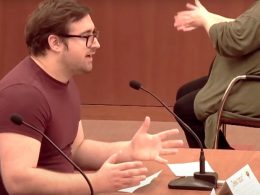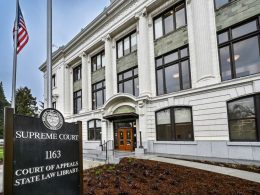Salem, OR – The U.S. Department of Education has reversed its recent decision to halt the acceptance of applications for income-driven student loan repayment plans, resuming processing for federal student loan borrowers as of Wednesday. The decision to reinstate the application process follows a month-long suspension that had left millions of Americans uncertain about their loan repayment options.
The pause in application acceptance was attributed to the need for “substantial revisions” to the income-driven repayment application, particularly after a temporary hold was placed on the Saving on a Valuable Education (SAVE) plan. The SAVE plan, a new initiative aimed at providing more manageable repayment terms for low-income borrowers, had been put on hold due to ongoing litigation initiated by Republican attorneys general in 2024.
In a news release, department officials explained that the revisions were necessary in light of the legal challenges facing the SAVE plan. The agency emphasized that the changes would streamline and improve the application process moving forward.
The suspension had a widespread impact on a variety of federal student loan repayment plans, including the Pay As You Earn (PAYE) program, the Income-Contingent Repayment plan, and the Income-Based Repayment plan. These plans cap monthly payments based on a borrower’s discretionary income, with forgiveness granted after 20 to 25 years of consistent repayment. The Public Service Loan Forgiveness program, which is available to those working in government or nonprofit organizations, was also affected, as eligibility for the program depends on enrollment in income-driven repayment plans.
More than 12 million student loan borrowers depend on these income-driven repayment programs, according to data from the U.S. Department of Education. In addition, over 1 million borrowers had applications still in process when the pause was implemented on February 24.
The reinstatement of the application process came after strong public outcry from borrowers and pressure from key lawmakers. Oregon Senator Ron Wyden and Vermont Senator Bernie Sanders were vocal in their opposition to the Department’s decision to halt applications. In early March, the senators penned a public letter addressed to the Department of Education’s director, Linda McMahon, demanding an explanation for the sudden suspension. They criticized the lack of warning and transparency and called for clear guidance on how borrowers should proceed.
Senator Wyden hailed the Department’s decision to resume accepting applications as a “victory for common sense,” but emphasized that the fight for fair treatment of student loan borrowers was far from over. He pledged to continue his advocacy to ensure that the Department follows through on its commitment to improve loan repayment processes.
The dispute surrounding the SAVE plan has also been a point of contention, with Republican attorneys general arguing that the Education Department exceeded its authority by implementing the plan. Under SAVE, low-income borrowers are required to pay nothing if their annual income is $30,000 or less, and the plan also limits the amount of interest that can accrue on loans, with some loans being forgiven after 10 to 20 years based on their size.
The SAVE plan, however, has been stalled since June 2024 due to the legal challenge. Despite this, the plan represents a broader shift in federal student loan policy aimed at easing the burden of repayment for struggling borrowers, particularly those in lower-income brackets.
The income-driven repayment programs, which were first introduced by Congress in 2007 and signed into law by President George W. Bush, have been crucial for many borrowers who are unable to make traditional loan payments. With the Department of Education resuming the application process, borrowers will once again have the opportunity to apply for these plans, which have provided significant relief to millions over the years.
As the legal battles continue and the Education Department works to address outstanding issues, many borrowers will be hopeful that the resumed application process signals a more stable and predictable path forward for student loan repayment.











